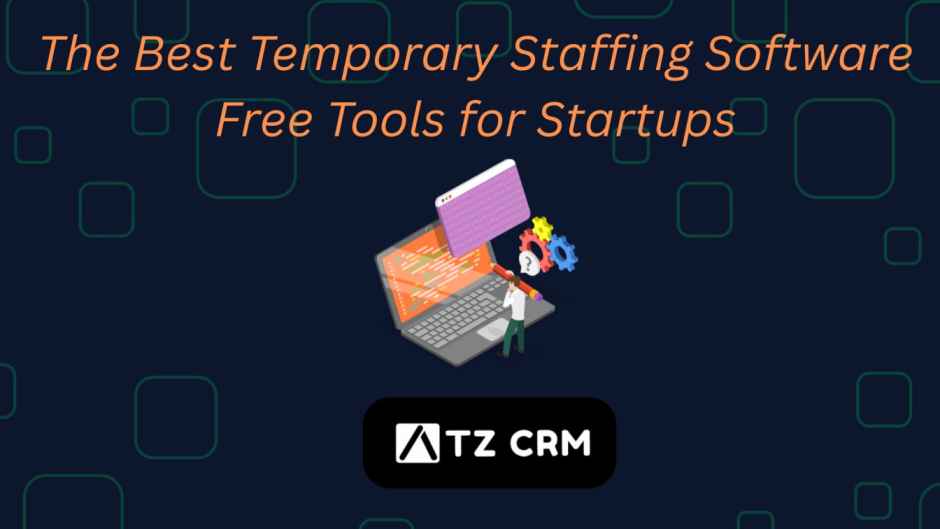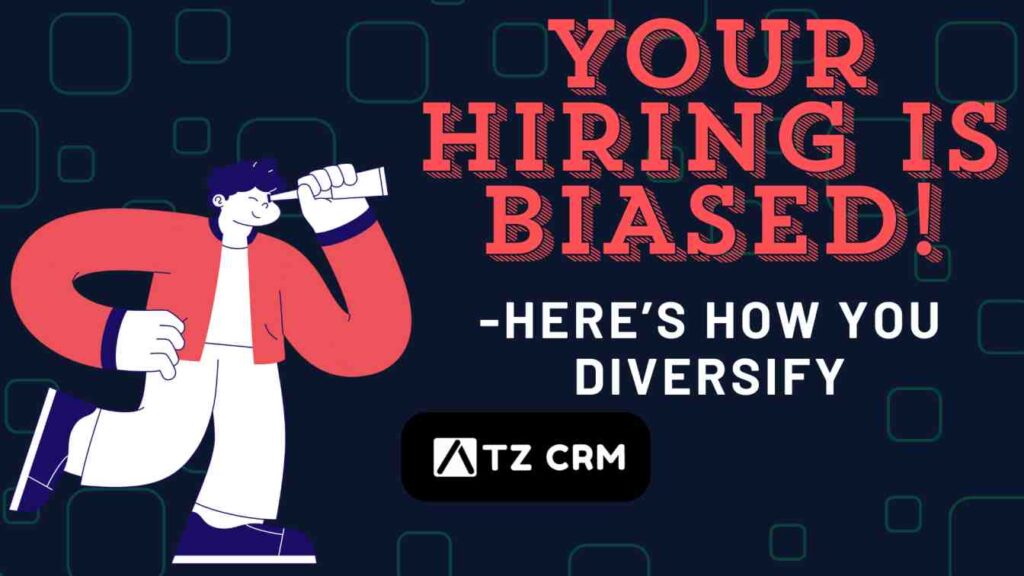Introduction
Scam threats in recruitment are no longer rare or easy to spot they’re clever, persistent, and getting harder to detect. From fake recruiter profiles to job post manipulation and brand impersonation, recruitment agencies face real risks every day. It’s not just about protecting your business anymore it’s about protecting your candidates and your reputation too. That’s why having a solid strategy matters: one that combines staff training, candidate awareness, secure systems, and fast response. Tools like ATZ CRM make a big difference by keeping everything centralized and flagging suspicious activity before it becomes a bigger issue.
Related Blog: Discover 10 Free Most Powerful ATS for Small Businesses
Why Recruitment Scams Are Increasing
1.The Remote Hiring Shift
As recruitment becomes predominantly remote, criminals impersonate recruiters via online platforms—LinkedIn, email, and messaging apps attempting to collect personal details or solicit fake application fees. The blurred lines of virtual interaction create ideal conditions for deception.
2. Economic Stress and Desperation
When economic uncertainty rises, vulnerable job seekers may jump at offers that promise high compensation with little effort. Scammers exploit this desperation by offering remote “work-from-home” roles that turn out to be frauds.
3.Simulated Legitimate Communications
Scammers often mimic legitimate recruiters using polished language, faux company branding, and fake job portals. They may replicate ATS interfaces and send data-rich, professional-sounding emails. This camouflage makes detection challenging.
4.Brand Impersonation
Fraudsters frequently copy agency branding logos, domain names, design templates to produce convincing fake websites or email addresses. These appear authentic to candidates and damage the real agency’s credibility.
Related Blog: The Ultimate Recruit CRM Showdown: Best ATS Ranked
Common Red Flags Every Agency Should Recognize
- Unsolicited perfect job offers promising high pay for minimal tasks.
- Requests for upfront payments for equipment, background checks, or training.
- Poorly written or mismatched emails (misspelled domains, odd language).
- High-pressure timelines urging candidates to sign or pay immediately.
- Fake recruiter profiles with no history, minimal connections, or generic information.
- Vague job descriptions lack clear details, deadlines, or company specifics.
Agencies should treat any such alerts as potential threats, investigate promptly, and ensure their teams and candidates are aware.
Proactive Agency Measures
1.Brand and Job Listing Monitoring
Use listening tools and alert systems to track mentions of your agency name, cloned job postings, or unauthorized domains. Rapid detection allows quick response and takedown requests.
2.Official and Secure Communication Channels
Enforce strict use of verified agency domains for all communications. List your official social media profiles on your website, and require candidates to apply only through your verified ATS platform.
3.Ongoing Staff and Candidate Training
Offer regular training for recruitment teams to recognize scam signs. Provide candidates with resources and tips to verify recruiter identities and question suspicious job offers.
4.Recruiter Identity Verification
Before moving any candidate forward, require identity checks for recruiters via verified LinkedIn profiles, company directories, or brief video introductions.
5.Multi‑Layered Technological Safeguards
Implement multi‑factor authentication (MFA) for emails, use spam filters tuned to detect domain anomalies, and secure endpoints. Integrate communication tools and documentation within ATZ CRM to ensure traceable and secure handling of interactions.
6.Enhanced Candidate Screening
Incorporate video interviews, structured reference checks, and resume verification processes to reduce the chance of engaging with fraudulent candidates or scams posing as candidates.
7.Incident Response Planning
- Promptly notify your audience via website or social media.
- Initiate domain takedown through service providers.
- File reports with relevant law enforcement or fraud prevention agencies.
- Notify affected candidates using standardized templates.
- Offer affected individuals support and resources to mitigate any damage.
8.Candidate Education and Support
Create a candidate resource center on your site with scam checklists, verification templates, and advice. Encourage them to share these with peers and to report any suspicious communications.
9.Transparency in Recruitment
Build trust by showcasing current clients and active job listings. Clarify every stage of the recruitment process (e.g., initial resume screening, video interview, final interview, client introduction) so candidates know what to expect.

How ATZ CRM Strengthens Your Defenses
ATZ CRM enhances security across all stages of recruitment:
- Centralized Communication: Every email, call, and message is logged within the platform—no scattered or overlooked threads.
- Secure Document Management: Resumes and attachments are stored securely in candidate profiles, reducing exposure to phishing.
- Flagging Capabilities: Recruiters can tag unusual or suspicious interactions for review.
- Role-Based Access Control: Client portals can be tailored so sensitive data is only visible to authorized users.
- Automated Alerts: The system can detect duplicate submissions or repetitive patterns and alert administrators.
- Detailed Audit Logs: Time-stamped activity records support compliance efforts and internal reviews.
- Integrated Workflow and Templates: Structured processes and communications reduce reliance on informal or insecure email trails.
With ATZ CRM, agencies gain a secure, scalable, and transparent platform to manage both routine and crisis scenarios.
Practical Case Illustrations
Fictional Scenario 1: Impersonated Job Listing
An agency discovers a cloned version of its careers page where scammers are capturing candidate data. Thanks to alert tools and ATZ CRM tracking, they swiftly remove the fake page, notify applicants, coordinate takedown measures, and reinforce email domain checks to prevent further incidents.
Fictional Scenario 2: Fake Recruiter Contact
A candidate receives a direct message from someone claiming to be a recruiter who demands payment for onboarding. The candidate reports it. The agency uses ATZ CRM to audit communications, flag the event, and use template communications to guide the candidate in verifying legitimacy and rescinding any transfers.
Related Blog: Diversity Recruiting Strategies and Expert Advice
Candidate-Facing Best Practices
Provide these clear reminders to job seekers:
- Always ask: “Can I verify this through your LinkedIn, website, and official email?”
- Insist on clear steps: interview, contract review, and employer background check.
- Never pay fees or share financial account information.
- Do not forward checks, and never overpay recruiters for equipment.
- Watch for rushed requirements—take time to verify credentials.
Trust instincts—if something feels off, it probably is. Halt further action and ask for verification.
Why Strong Defenses Matter
- Reputation Integrity: Even if not directly responsible, agencies can be shamed or blamed when their brand is misused.
- Compliance Protection: Data misuse and breaches can open the agency to legal consequences.
Final Recap
- Recruitment scams are becoming increasingly prevalent and sophisticated, often hidden in trusted branding.
- Agencies should constantly monitor their brand presence, train staff and candidates, verify identities, and deploy rapid response plans.
- A trusted system like ATZ CRM provides the foundation for secure communication, documentation, and process visibility.
- By combining awareness, education, and secure technology, agencies protect themselves, their candidates, and their reputation, and emerge more trustworthy than ever.
Experience the full power of ATZ CRM with a free trial – no credit card needed!
Test all our features before making a commitment. Ready to see our ATS + CRM in action?


